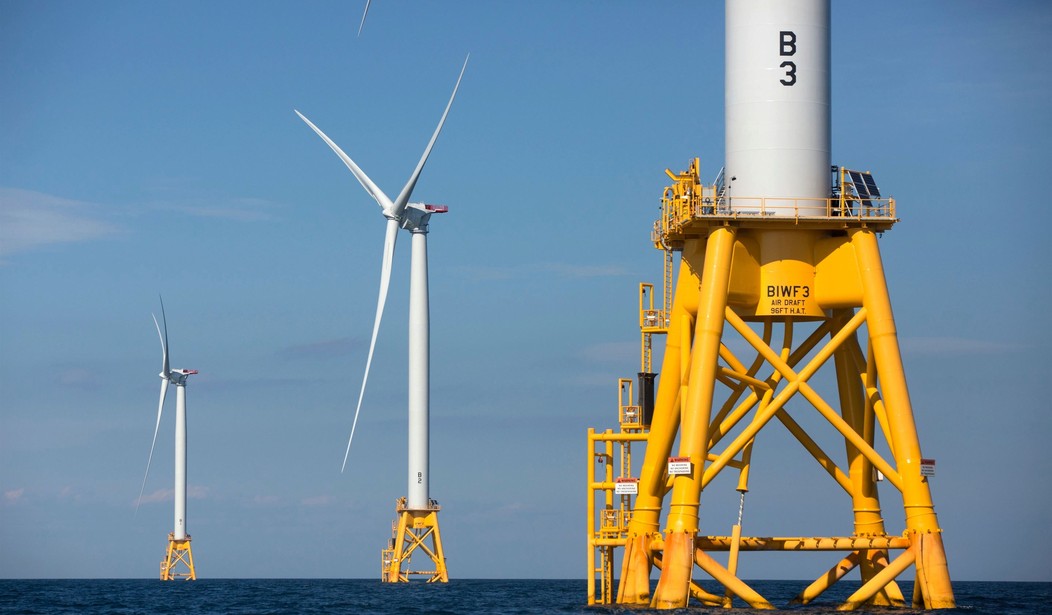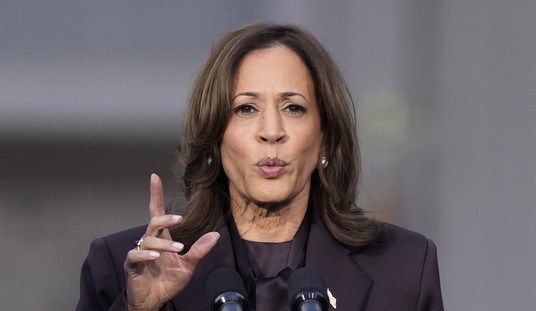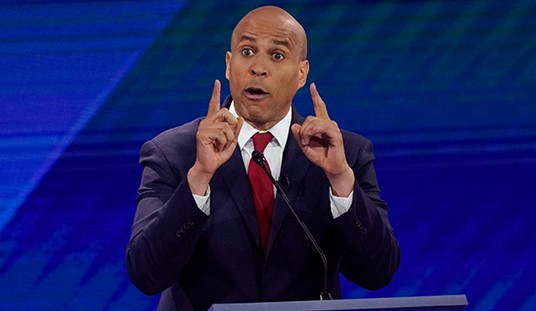Elections do indeed have consequences. One of the consequences of the presidential election that is now only six days in the past is that many a climate scold is going to be disappointed with Donald Trump when he resumes office and opens the curtain on "Trump II: This Time It's Personal."
One of President-elect Trump's first actions may be to cancel federal support for offshore wind farms. That would be an unalloyed good thing, for a variety of reasons.
And, yes, it's going to upset some folks.
Critics of the offshore wind industry are calling on President-elect Donald Trump to keep his campaign promise of ending federal support for offshore wind on his first day in office.
Trump’s return to the Oval Office may deal the problem-riddled offshore wind industry another blow if his administration follows through on his pledge to scrap federal support for offshore wind projects during his second term. Republican lawmakers, opposed to heavily subsidized green energy, and commercial fishermen, who view the industry as an existential threat to their livelihoods, are calling on the president-elect to follow through on his campaign’s promise, which could imply ending federal subsidies and lease sales for the industry.
The reason that the wind power schemes are "problem-riddled" is pretty simple: They aren't viable. Wind power is low-energy-density, it's unreliable, it's expensive, and it's not environmentally sound. The big carbon-fiber blades have a limited life span, and they aren't reusable or recyclable. The mills kill birds in the thousands, maybe millions, including raptors. Not to mention that they are ugly.
During the campaign, President-elect Trump promised to end these federal interventions in the energy marketplace.
“We are going to make sure that [offshore wind] ends on day one. I’m gonna write it out in an executive order,” Trump told a crowd of his supporters at a campaign rally in Wildwood, New Jersey, on May 11. “It’s gonna end on day one.”
Since January 2021, the Biden-Harris administration has approved ten offshore wind projects at commercial scale and conducted six offshore wind lease sales, including one held just last week in the Gulf of Maine that was criticized by the commercial fishing industry as part of President Joe Biden’s wider climate agenda. Offshore wind has notably suffered from inflation headwinds, project cancellations and souring public opinion despite the Biden administration’s embrace of the industry.
Wind power should be left to compete in the open marketplace against nuclear, solar, gas, and coal — which it won't, of course. Solar doesn't do all that well either, for that matter. All of this is done in the name of "climate change," and the end result of all of these schemes is a reduction in our lifestyle — rising energy costs, rising costs of everything else, all to prevent the earth from warming by a degree and a half over the next century.
See Related: Wind Power and Carbon Dioxide: A Major Debunking
Generation of Wind Power Dropped in 2023. Why? Less Wind.
Several Republican East Coast pols are chiming in with their support:
“I have no doubt that a second Trump administration will do the right thing for Americans by scrapping the Biden-Harris offshore wind agenda,” Republican New Jersey Rep. Jeff Van Drew, a vocal critic of the offshore wind industry, told the DCNF. “These projects are a burden on our economy, harm local communities and are nothing but a political payoff to special interests. President Trump understands that true energy independence and prosperity come from American oil, gas, solar and especially nuclear energy, through a balanced energy policy — not from wasteful wind projects that put our economy and environment at risk.”
“I think it’s a very wise decision,” Republican Maryland Rep. Andy Harris, chairman of the House Freedom Caucus, told the DCNF. “We are wasting money, and the worst part is that all that money is going to foreign wind companies because there are no American wind companies. They’re all foreign companies that are making billions of dollars off the American energy ratepayer.”
But there's a bigger catch than all that. Here it is:
Amendment X: The powers not delegated to the United States by the Constitution, nor prohibited by it to the states, are reserved to the states respectively, or to the people.
There are a million and one reasons for the federal government to take its thumb off this scale, including the fact that we are $35 trillion in debt and shouldn't be spending taxpayer dollars to support boondoggles like this. But nobody, on either side of this argument, seems to be paying much attention to the constitutional argument, which is quite simply that the Constitution prohibits the federal government from taking this action. There is no enumerated power in the Constitution allowing the federal government to meddle in the energy marketplace. The Tenth Amendment states that absent such an enumerated power, Washington is prohibited from taking any such action.
Why has this argument not been brought up? Why do we keep having to point out that so much of what Washington does is actually prohibited by the Constitution? Why?
President-elect Trump is determined to scale back on wasteful government spending, and to undo stupid policies. That's great. But he shouldn't overlook the Tenth Amendment, the best of all possible arguments to not only cut off wasteful green energy schemes designed to appease climate scolds — but to swing a great big Viking war-axe at the federal government as a whole.
Let us hear it for a leaner, meaner America, Mr. President-elect!















